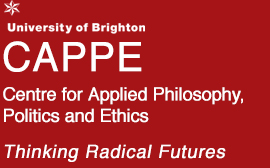25th Oct 2011 6:30pm
M57, Grand Parade, University of Brighton

6.30pm, 25 October 2011
M57, Grand Parade
‘Max Stirner’s 'Ethics of Voluntary Inservitude’ is the author of From Bakunin to Lacan: Anti-authoritarianism and the Dislocation of Power (2001), Power and Politics in Poststructuralist Thought,(2005), New Theories of the Political (2006), Unstable Universalities: Postmodernity and Radical Politics (2009, and The Politics of Postanarchism, (2010). Saul's work has consistently sought to defend the virtues of anarchist politics, while at the same time reconstructing certain of its premises in light of contemporary thought. For an alternative to the tired cliches of politics today come and listen to this discussion of Stirner's work.
My aim in this paper is to show how nineteenth century radical Young Hegelian Max Stirner’s critical post-humanist philosophy allows him to engage with a specific problem in politics, that of voluntary servitude – in other words, the wilful acquiescence of people to the power that dominates them. Stirner’s demolition of the abstract idealism of humanism, rational truth and morality, and his alternative project of grounding reality in the singularity of the individual ego, may be understood as a way of countering and avoiding this condition of self-domination. In contrast to various claims that Stirner’s thought is nihilistic and inimical to any ethical position, one finds in Stirner a series of ethical strategies through which the self’s relation to power is interrogated and in which the possibility of alternative modes of subjectivity is opened up; where the subject can invent for him- or herself new forms of existence and practices of freedom that release him from this condition of subjection. There emerges from Stirner’s thought a micro-politics and an ethics, with important implications for any consideration of radical political action today.